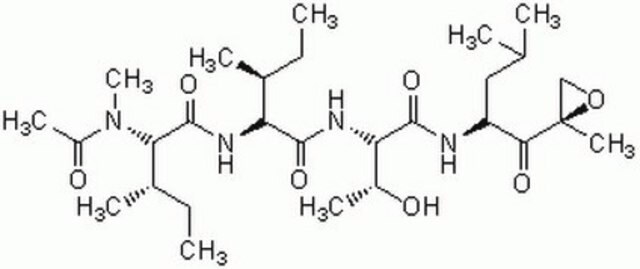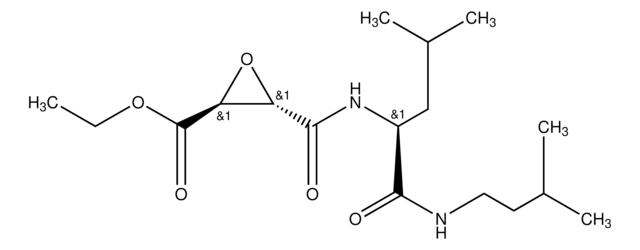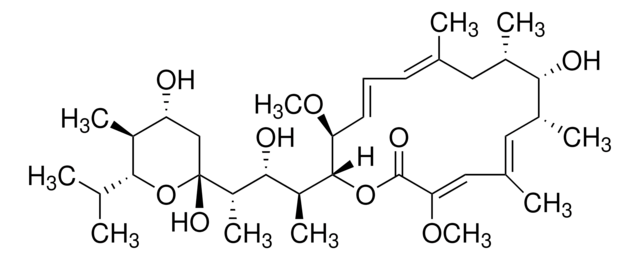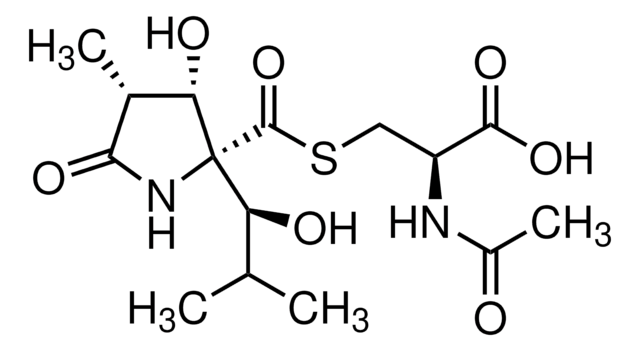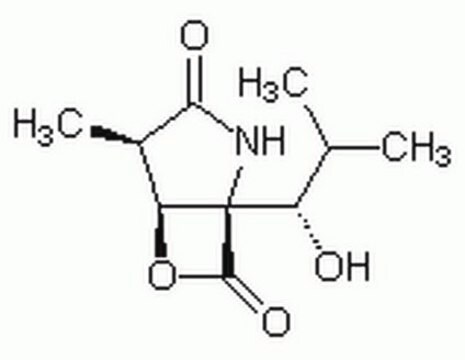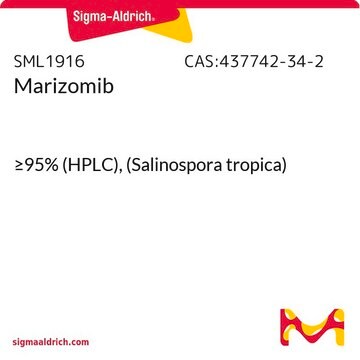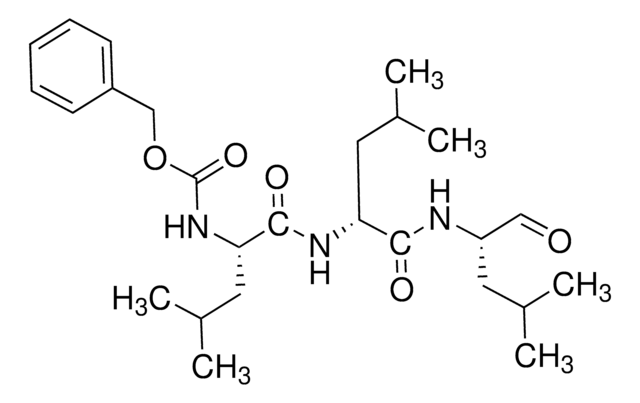E3652
Epoxomicin
≥95% (HPLC), solid
Synonym(s):
N-Acetyl-N-methyl-L-isoleucyl-L-isoleucyl-N-[(1S)-3-methyl-1-[[(2R)-2-methyloxiranyl]carbonyl]butyl]-L-threoninamide
About This Item
Recommended Products
assay
≥95% (HPLC)
form
solid
storage temp.
−20°C
SMILES string
CC[C@H](C)[C@H](NC(=O)[C@H]([C@@H](C)CC)N(C)C(C)=O)C(=O)N[C@@H]([C@@H](C)O)C(=O)N[C@@H](CC(C)C)C(=O)[C@@]1(C)CO1
InChI
1S/C28H50N4O7/c1-11-16(5)21(30-27(38)23(17(6)12-2)32(10)19(8)34)25(36)31-22(18(7)33)26(37)29-20(13-15(3)4)24(35)28(9)14-39-28/h15-18,20-23,33H,11-14H2,1-10H3,(H,29,37)(H,30,38)(H,31,36)/t16-,17-,18+,20-,21-,22-,23-,28+/m0/s1
InChI key
DOGIDQKFVLKMLQ-JTHVHQAWSA-N
General description
Application
- as an ubiquitin–proteosome system (UPS) inhibitor in pheochromocytoma PC12 cells
- as a proteasome inhibitor in mammary epithelial MCF-10A cells
- as a proteasome inhibitor in chymotryptic assay in cardiomyocytes
Biochem/physiol Actions
Storage Class
11 - Combustible Solids
wgk_germany
WGK 3
flash_point_f
Not applicable
flash_point_c
Not applicable
ppe
Eyeshields, Gloves, type N95 (US)
Choose from one of the most recent versions:
Already Own This Product?
Find documentation for the products that you have recently purchased in the Document Library.
Customers Also Viewed
Our team of scientists has experience in all areas of research including Life Science, Material Science, Chemical Synthesis, Chromatography, Analytical and many others.
Contact Technical Service



